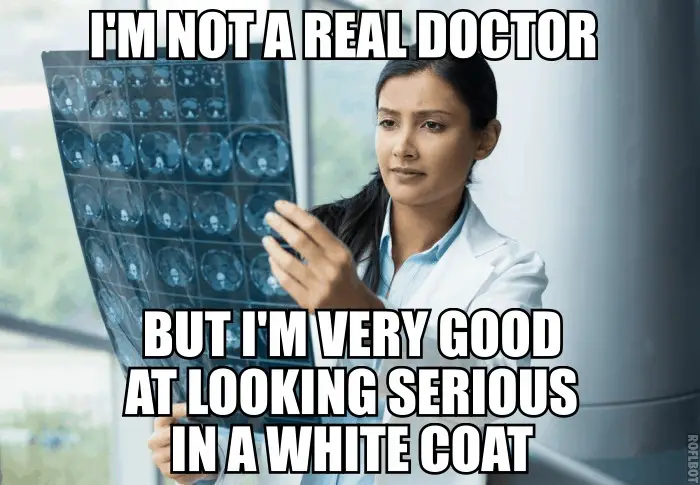Parents, we’re moving through September and I would wager money that at least some of you (**raises own hand) have heard from your student that they’ve gotten sick.
It’s really no surprise and basically just a continuation of the annual go back to school--immediately get sick cycle that we’ve gone through since they were in preschool.
But this time, this time it’s different.
This time, we are not there in person to offer home remedies, pamper, medicate, and otherwise take care of them.
That’s okay--they’re all grown up and it’s time for them to learn that part of adulthood.
But still…
It can be hard on both ends. That is why I reached out to Dr. Nicole Rochester, board-certified pediatrician, founder of Your GPS Doc, and author of the book, Healthcare Navigation 101: A Guide for College-Bound Students (and Parents!).
About Dr. Rochester
First things first, let’s talk a bit about Dr. Rochester’s credentials. After all, I am just a parent like all of you and not qualified to give actual medical advice.

She has some impressive creds:
- Earned her undergraduate degree from Johns Hopkins University,
- Earned her medical degree from the University of Maryland School of Medicine
- Completed her pediatric residency training at Children's National Medical Center in Washington, DC.
- Serves on the Board of Trustees for the Maryland Health Education Institute
- Member of the Alliance of Professional Health Advocates, the American Academy of Pediatrics, and the American Association for Physician Leadership
- TedX and keynote speaker
- Runs an excellent website at www.yourgpsdoc.com
In short, she has the goods.

She Wrote the Book on Health for College Students
No, really, she did!
I asked Dr. Rochester what inspired her to write the book. She has two daughters and had already sent one off to college. Last summer, when sending her younger daughter to college, she thought back to the many questions she got from her oldest the first time around.
- What medication can I take for this?
- Should I go to the student health center?
- How do I pick up my prescription?
In the process of teaching her daughter how to manage her own health, she had a thought. A great thought, as it turns out.
“All college-bound students and their parents need this information.”
The book is a great resource and is recommended reading. You can find it here on Amazon, in either Kindle or paperback.
Common Health Issues Faced by College Students
I asked Dr. Rochester for her thoughts on what the “typical” college student issues are when it comes to health.
What are the most common issues facing our students?
- When and how to seek appropriate medical care
- How to effectively communicate with physicians and other healthcare professionals
- How to manage chronic illnesses while away at college
What about the most common illnesses faced by students? She nailed this one for my household. On the day I am drafting this post, my sophomore at Ohio State visited the campus health center for head cold and sinus symptoms and returned to her dorm with a z-pack.
The most common illness faced by college students is, drum roll, upper respiratory illness. This includes the common cold and sinus infections. Others making the list include flu-like illnesses, seasonal allergies, and minor injuries (cuts, burns, sprains, strains).
College Students: Discussing Mental Health and Sexual Health
The statistics for depression and anxiety among college-age students are grim. It’s important for our students to know when and where to get help when they are facing emotional challenges. Dr. Rochester’s book has a chapter devoted to this important topic and it is worth a frank discussion with your child as well. College can be the best time of life for many, but for many others it is a true challenge and help is needed.
For those entering college with a known mental illness or those who develop such an illness while in college, it is absolutely critical that these students have a plan in place for regular professional care and ongoing support.
Sexual health is another area covered by Healthcare Navigation 101: A Guide for College-Bound Students (and Parents!). It is nothing to be squeamish about--our kids need to know where they can find care for contraception, routine gynecologic care, or if they are worried about a sexually transmitted infection.
College Students and Medical Privacy: HIPAA
I know this is an issue because I’ve seen parents post about it on college parent Facebook groups. Did you know that once your child turns 18, you no longer can access their private health information (“PHI”) without your child’s consent? And yes, even if you’re paying for everything.
While there are exceptions for emergency situations, the safest route is to obtain a HIPAA authorization form, signed by your child, that allows you (or whomever designated) to obtain and discuss your student’s PHI.
The tables have turned when it comes to signing permission slips, right? I sort of miss those days….

Bottom Line: Talk to Your Student About Medical Care Before She Needs It (and check out Dr. Rochester’s book!)
Even though the summer before college is over, it’s not too late to knock off some To Do items.
- Make sure your child knows how to get medical care
- Set up your student with some basic first aid and pain relievers (our packing list as some ideas)
- Consider a HIPAA authorization form
- Check out Dr. Rochester’s great book--terrific resource for us all!
Here’s to a healthy fall….see you next time!
